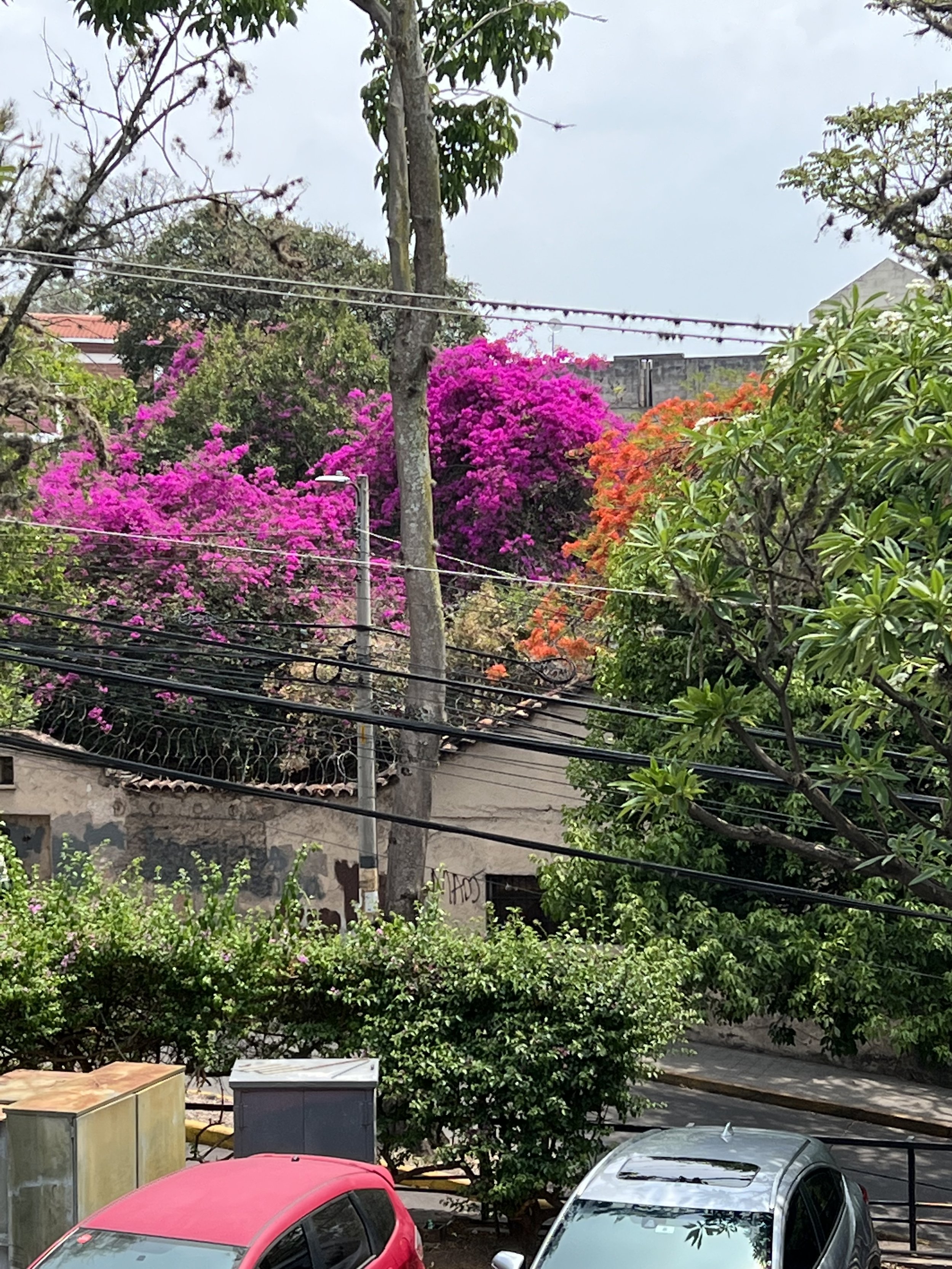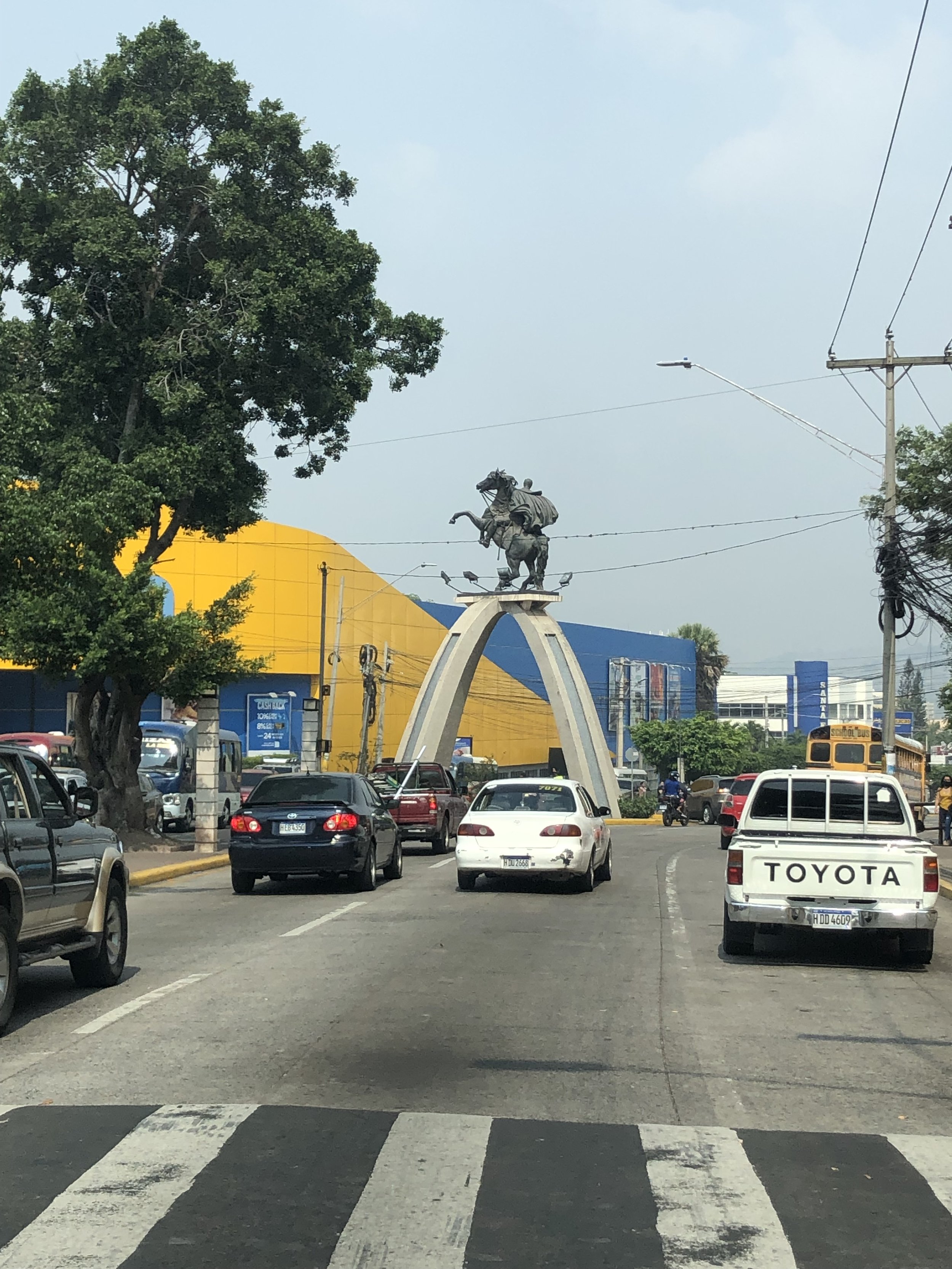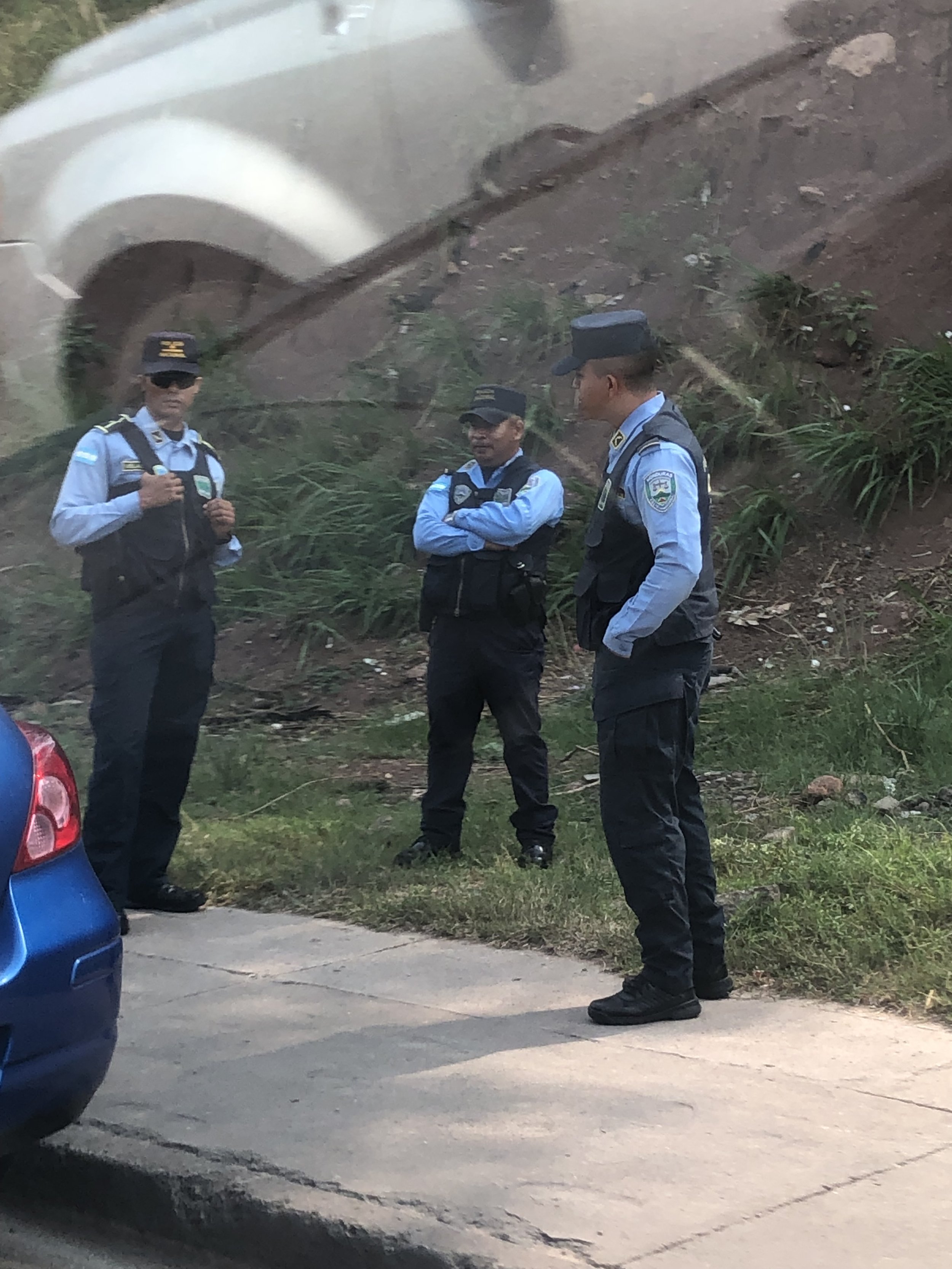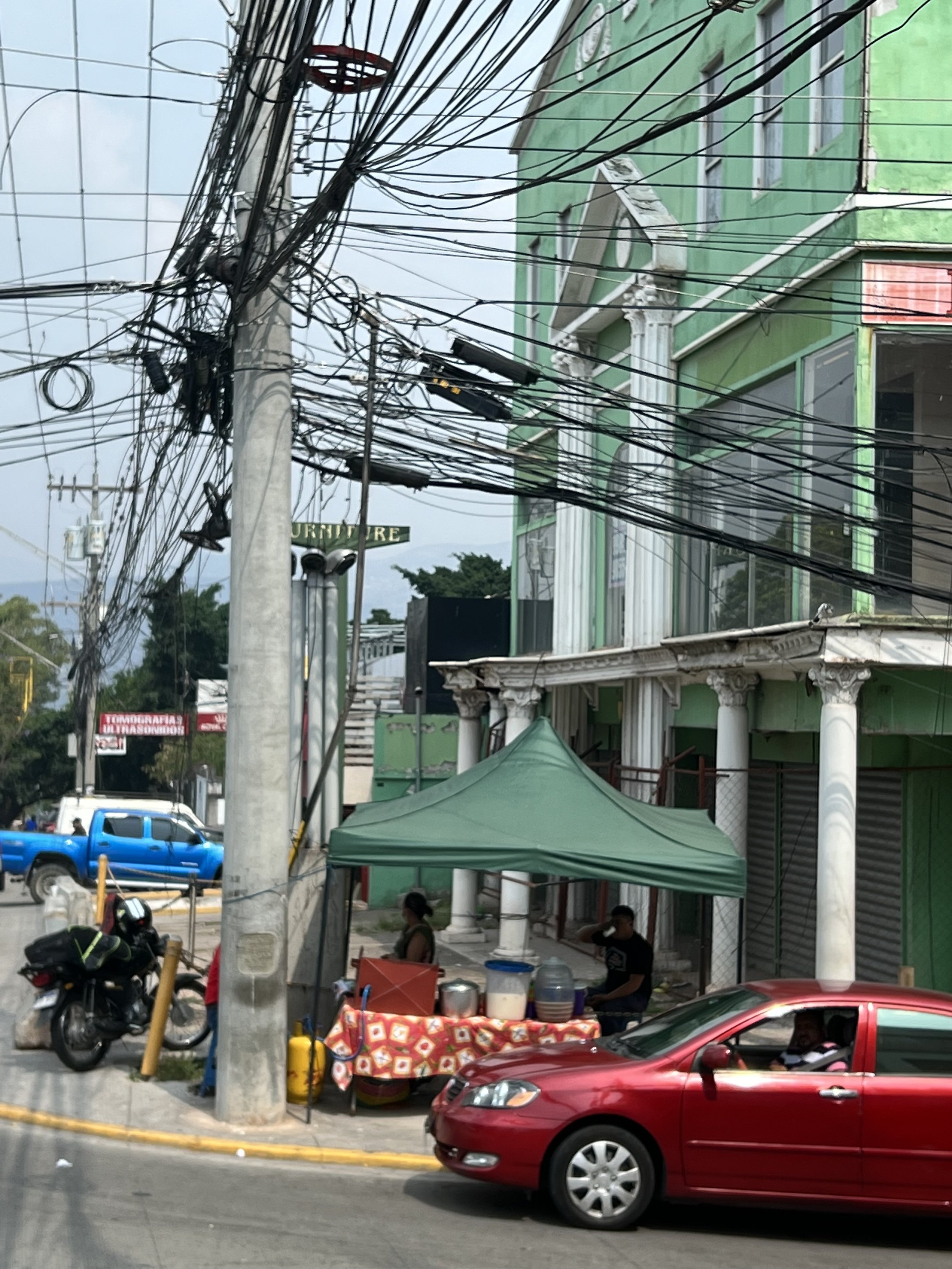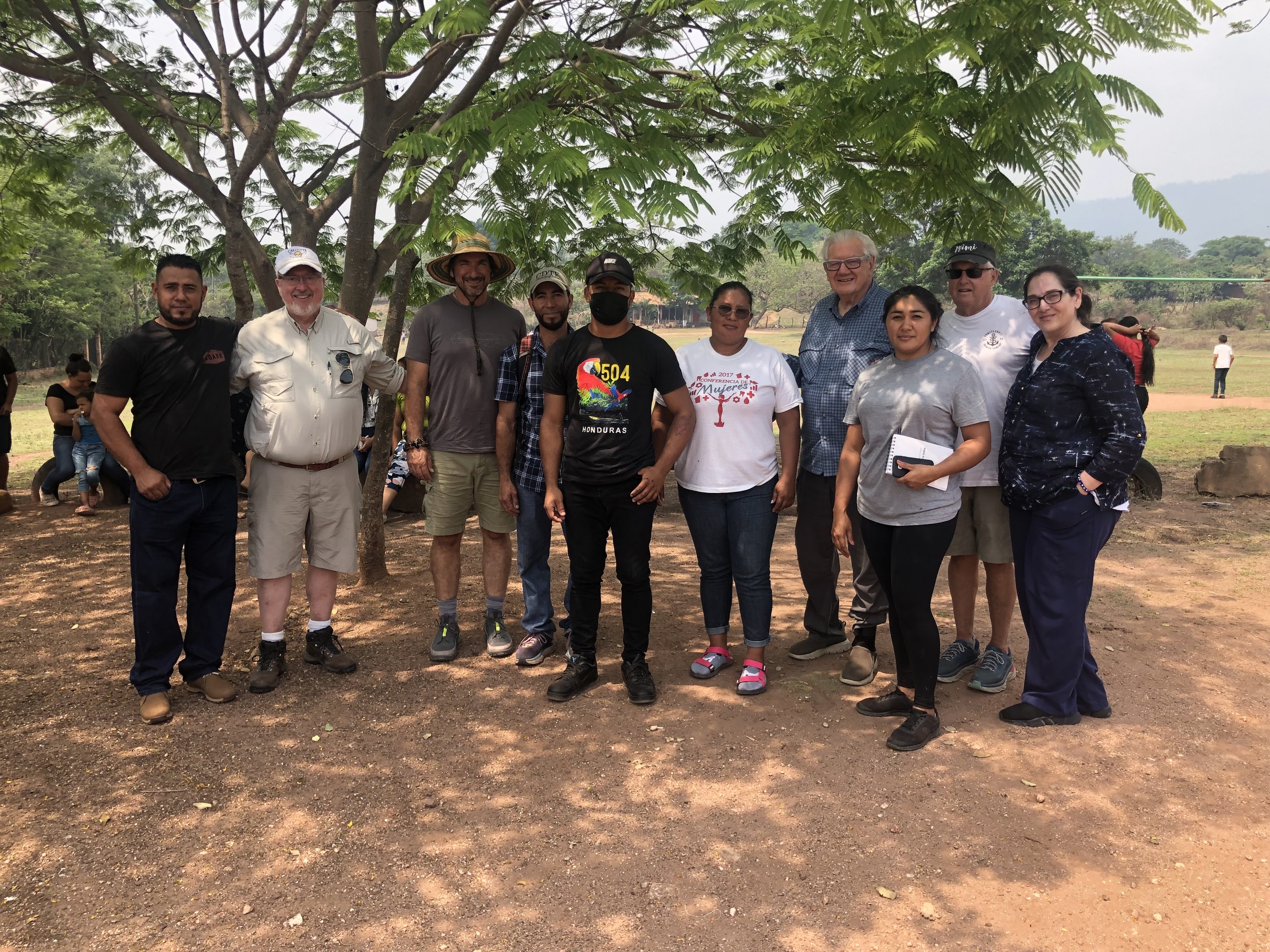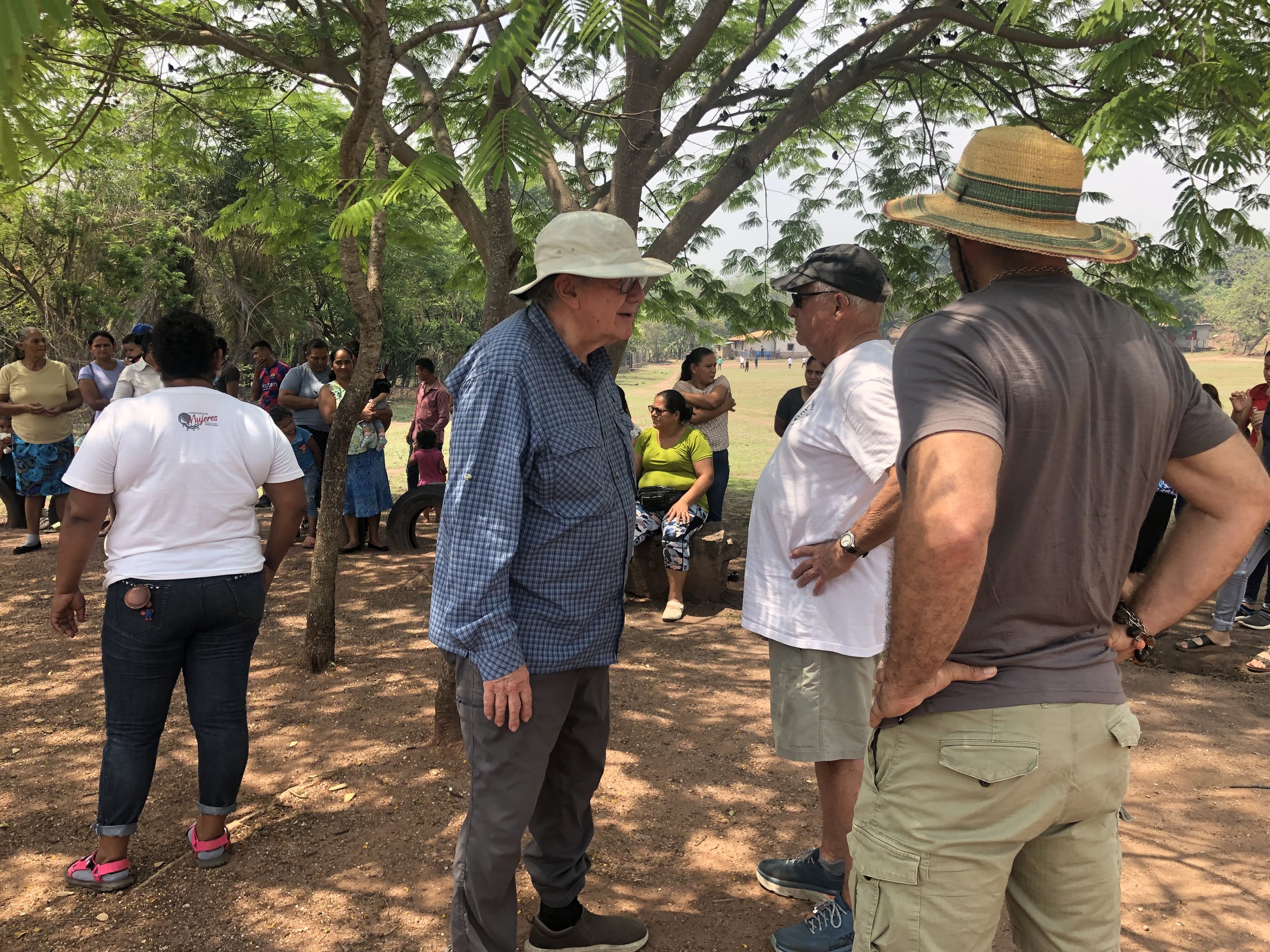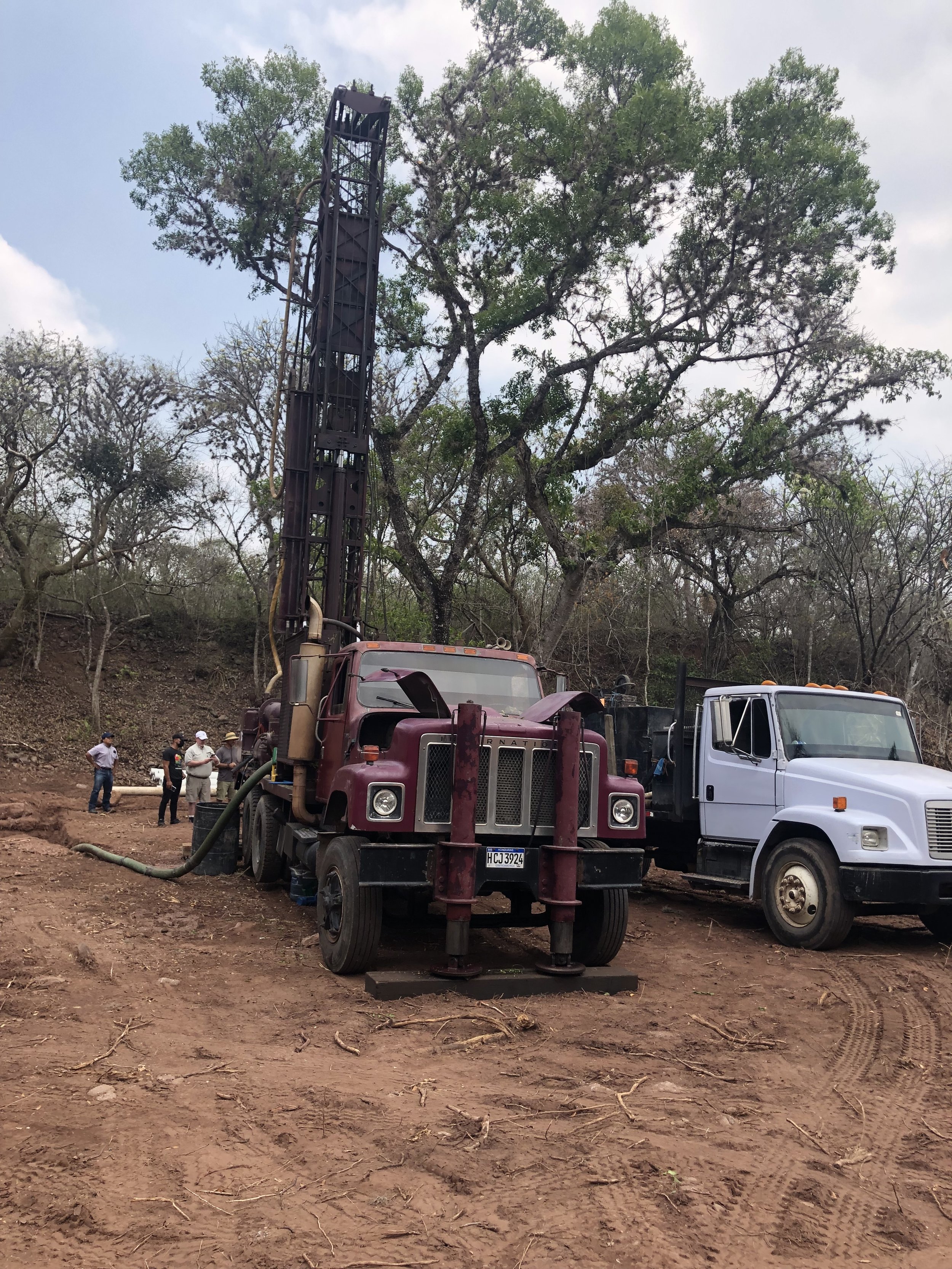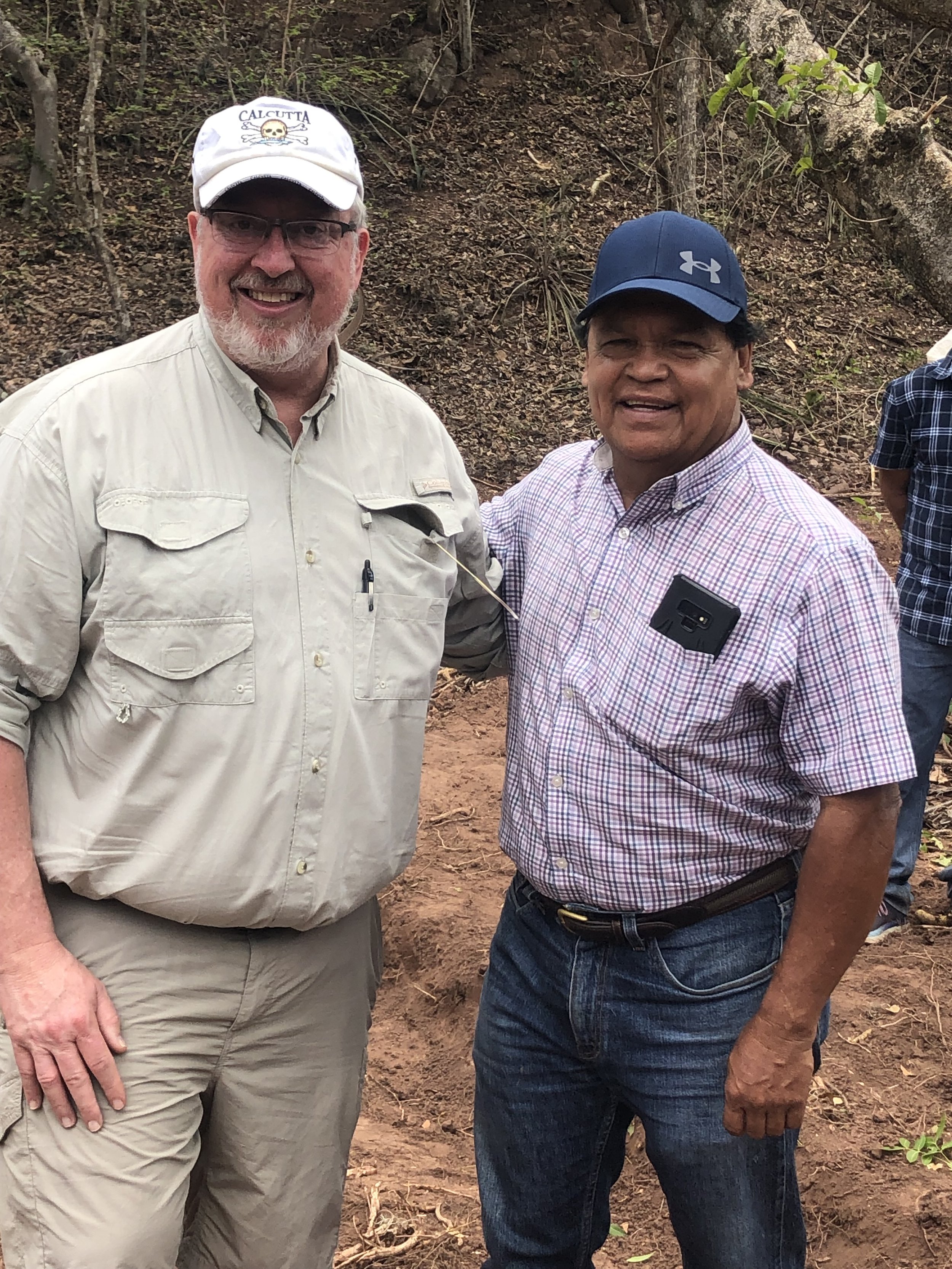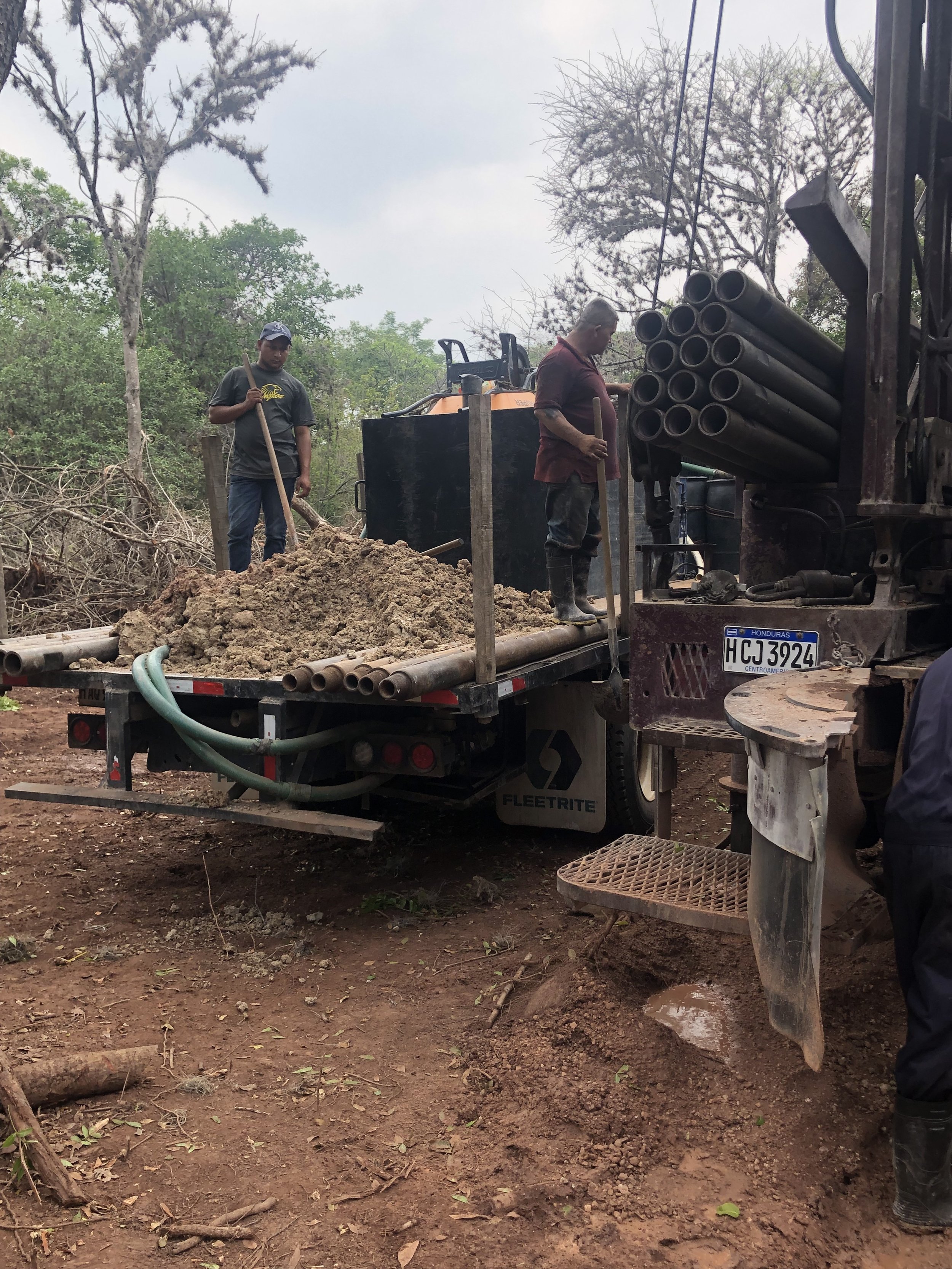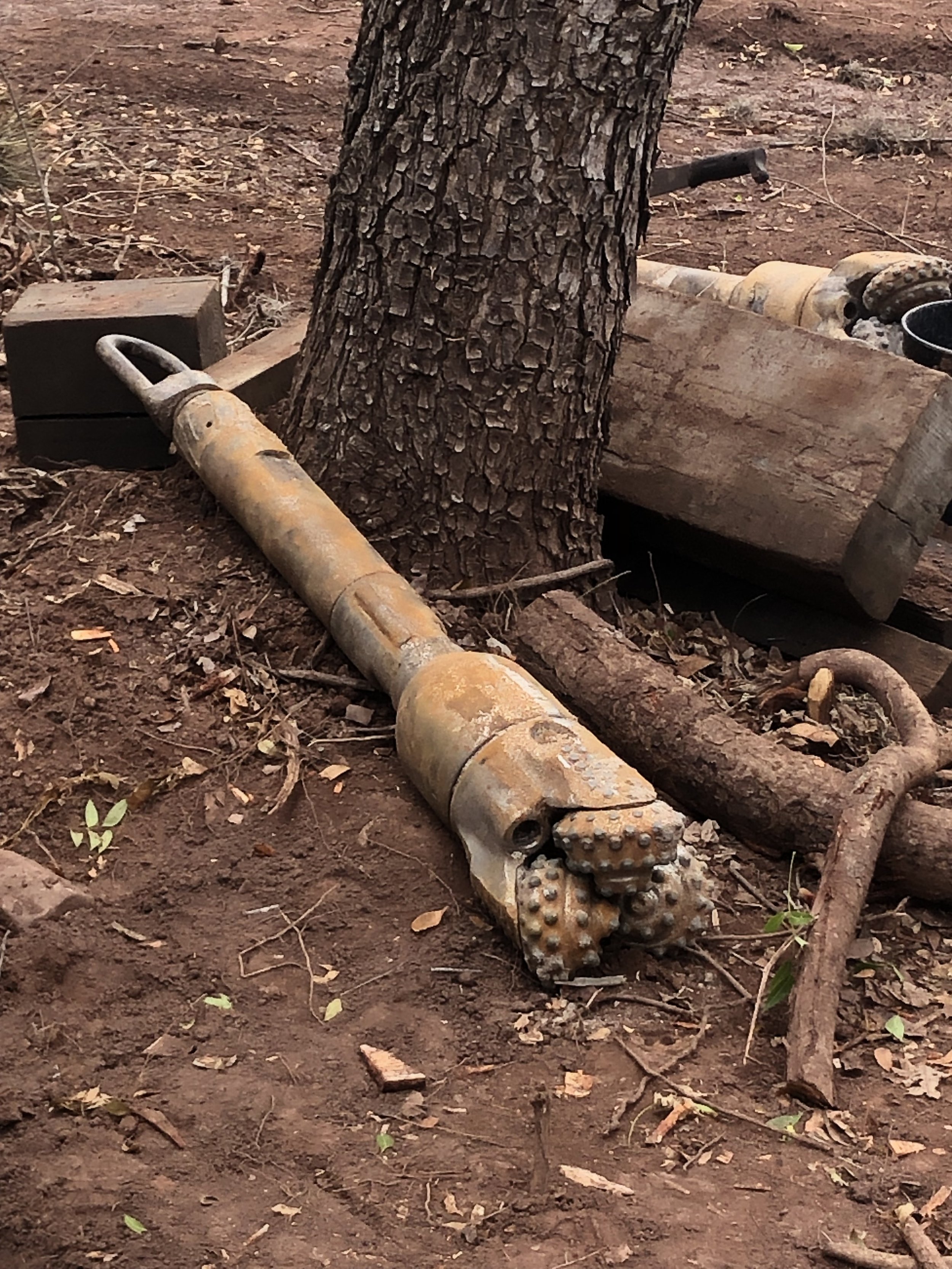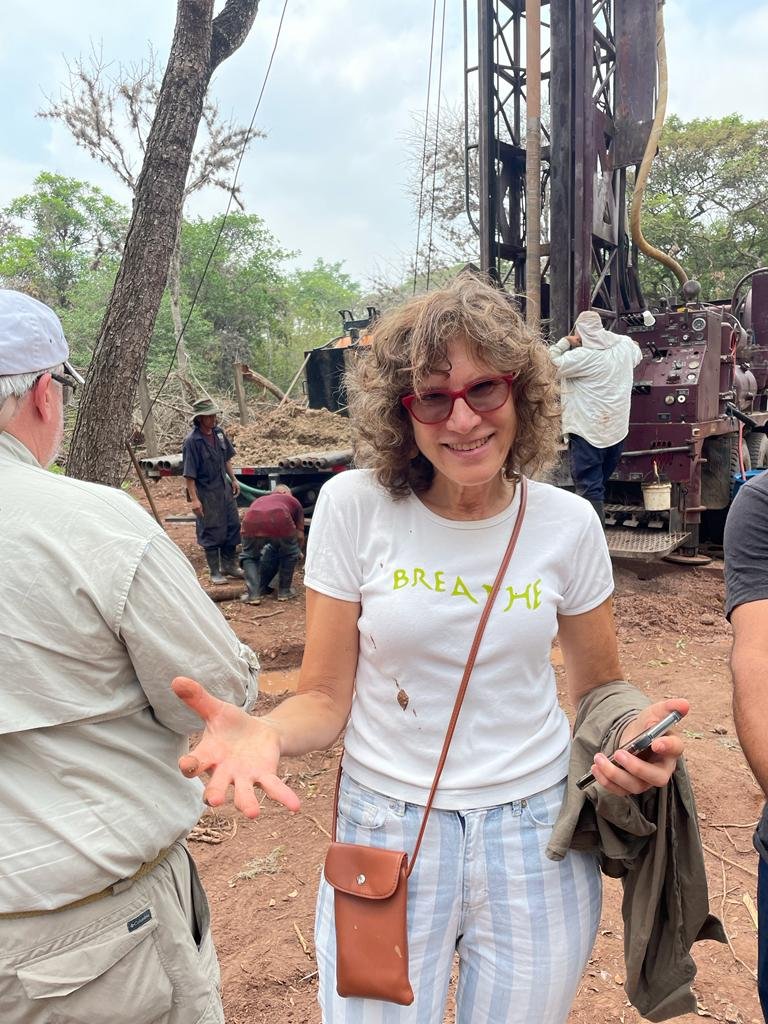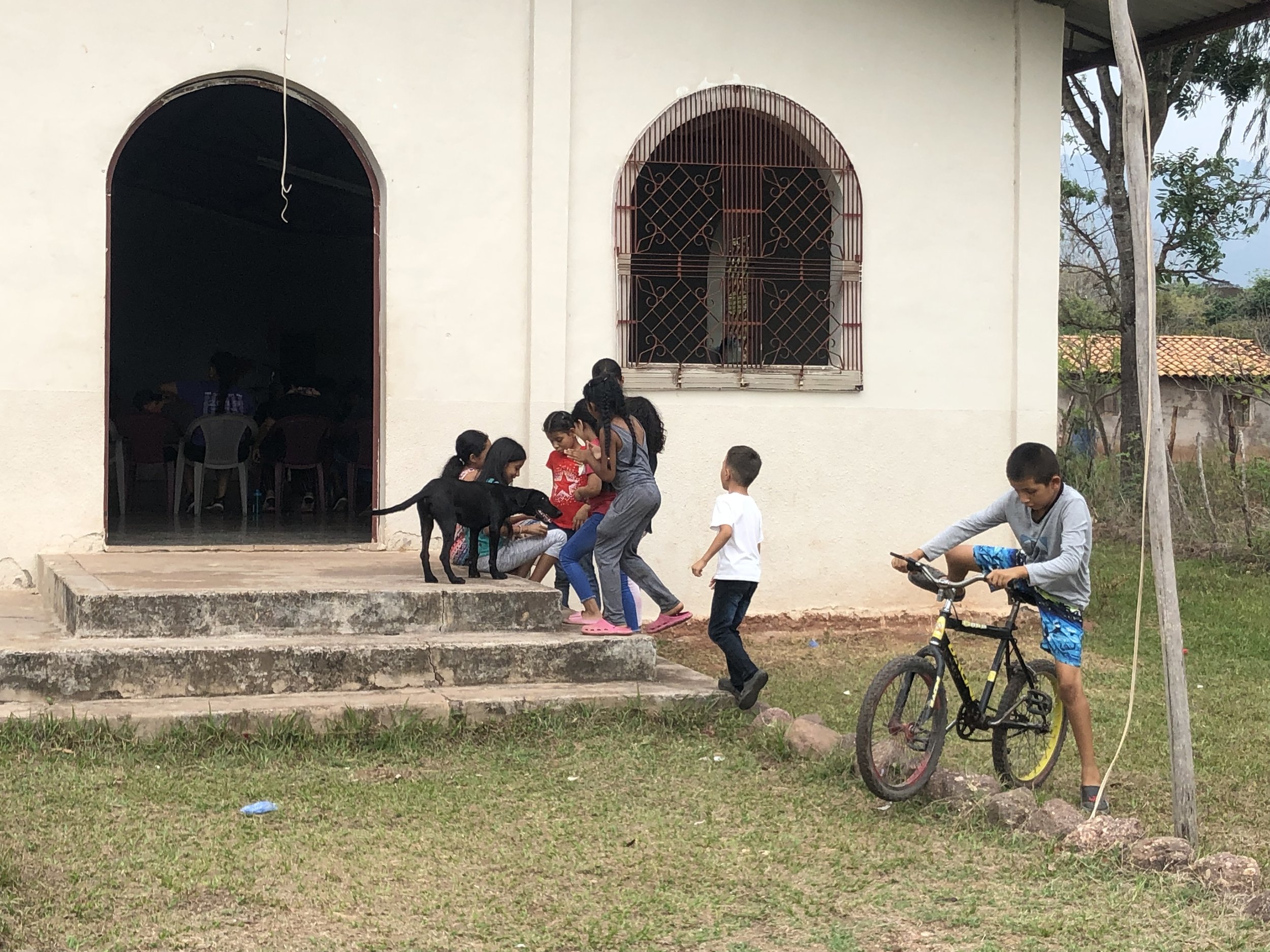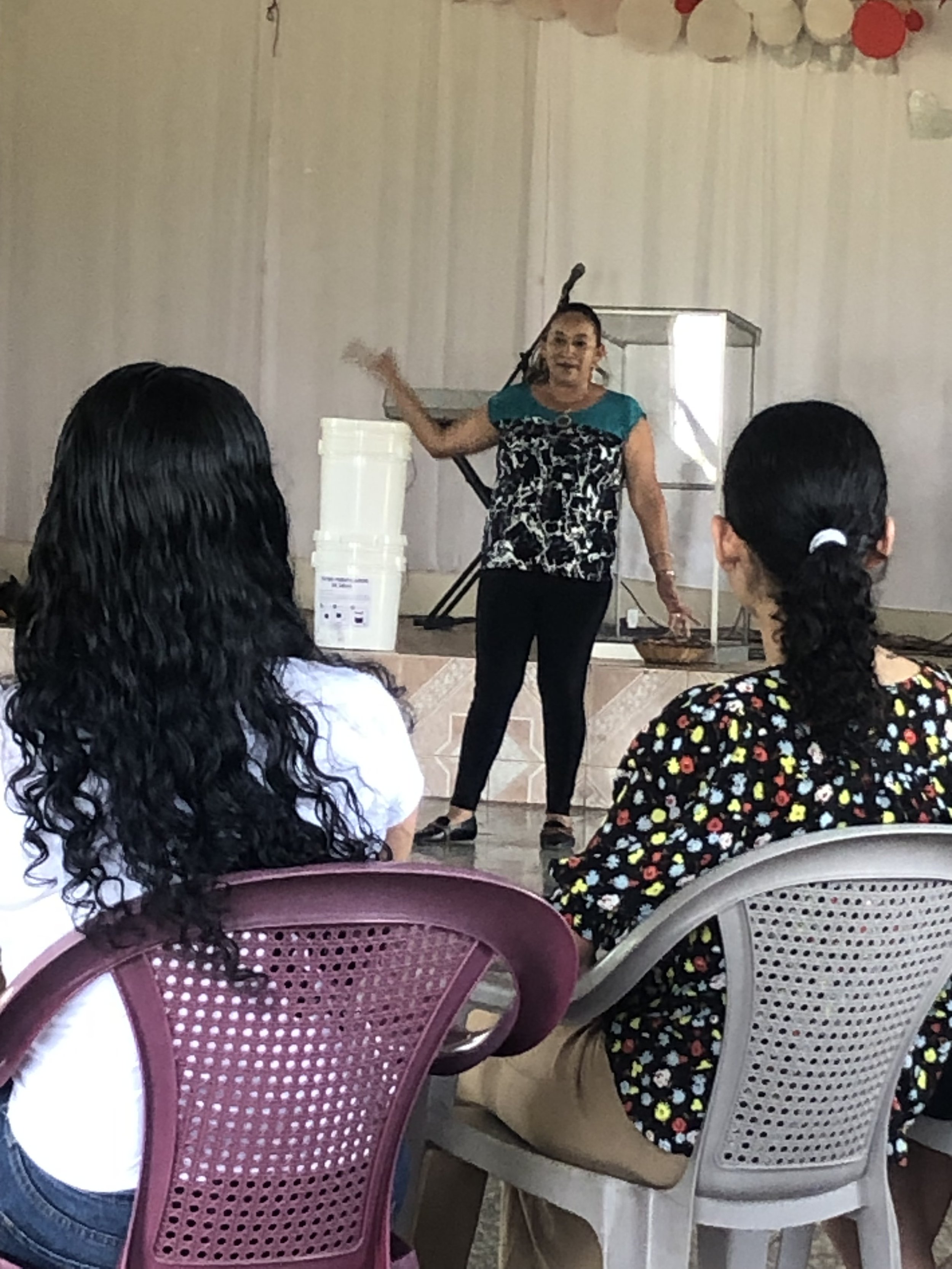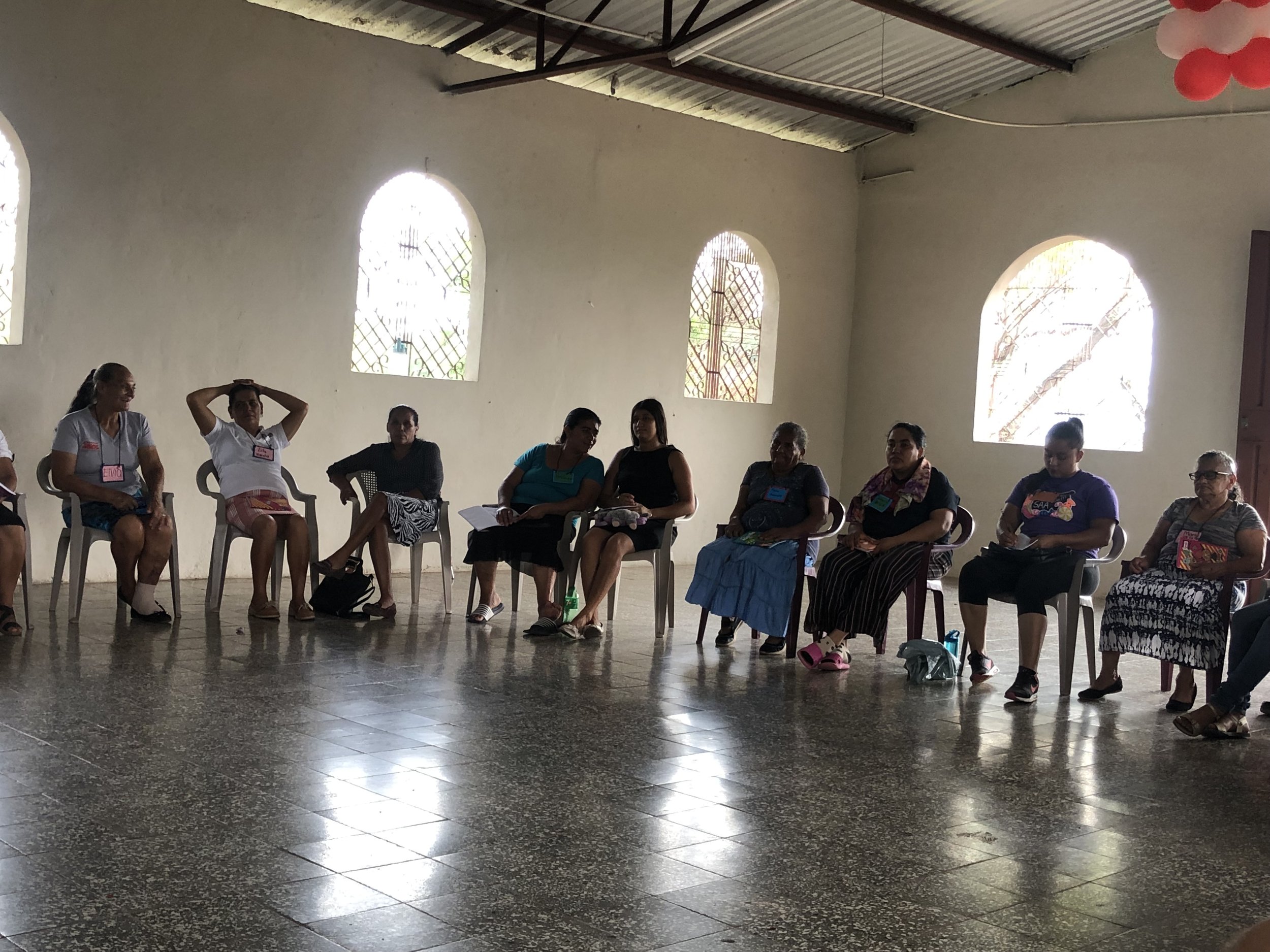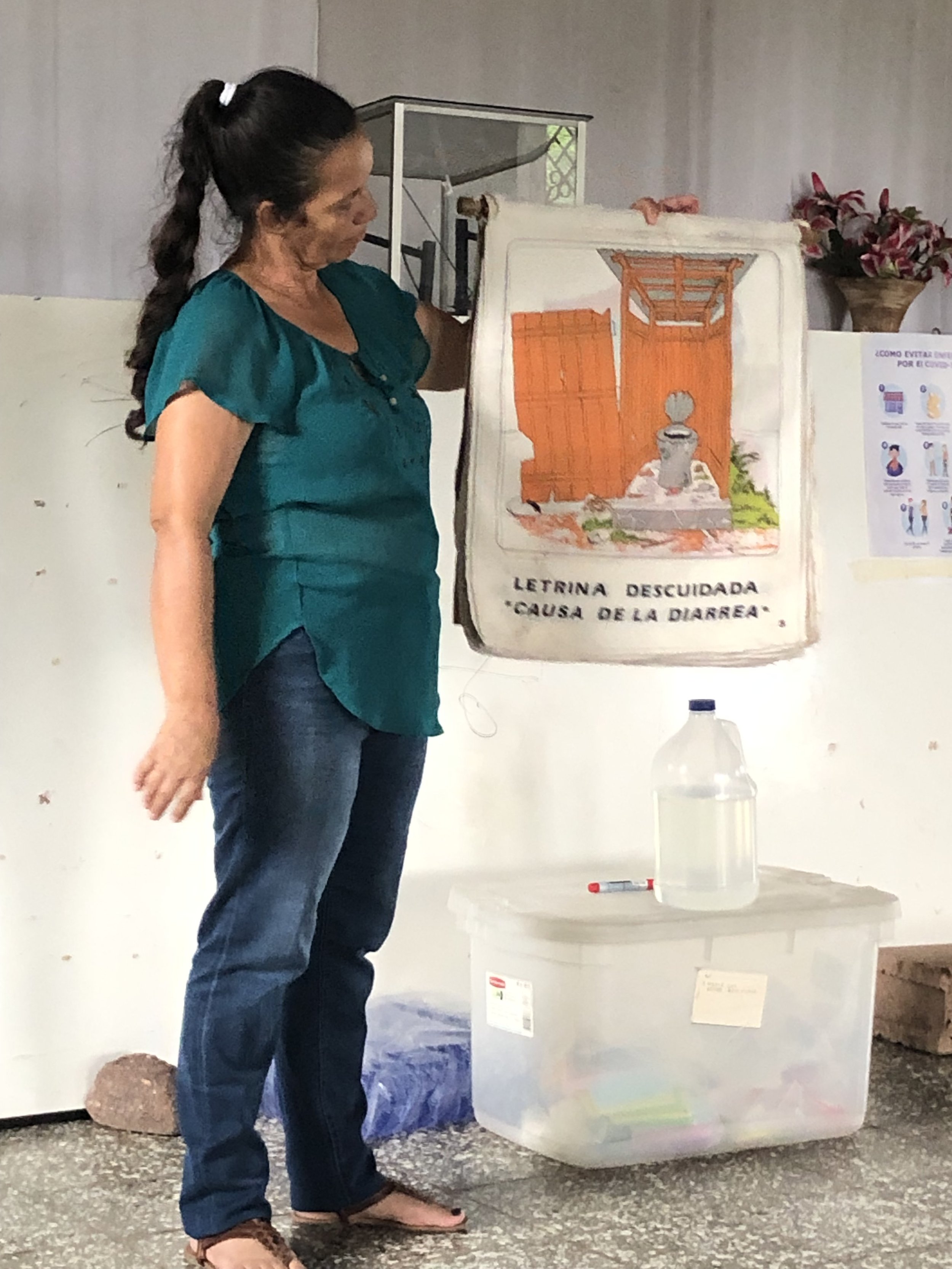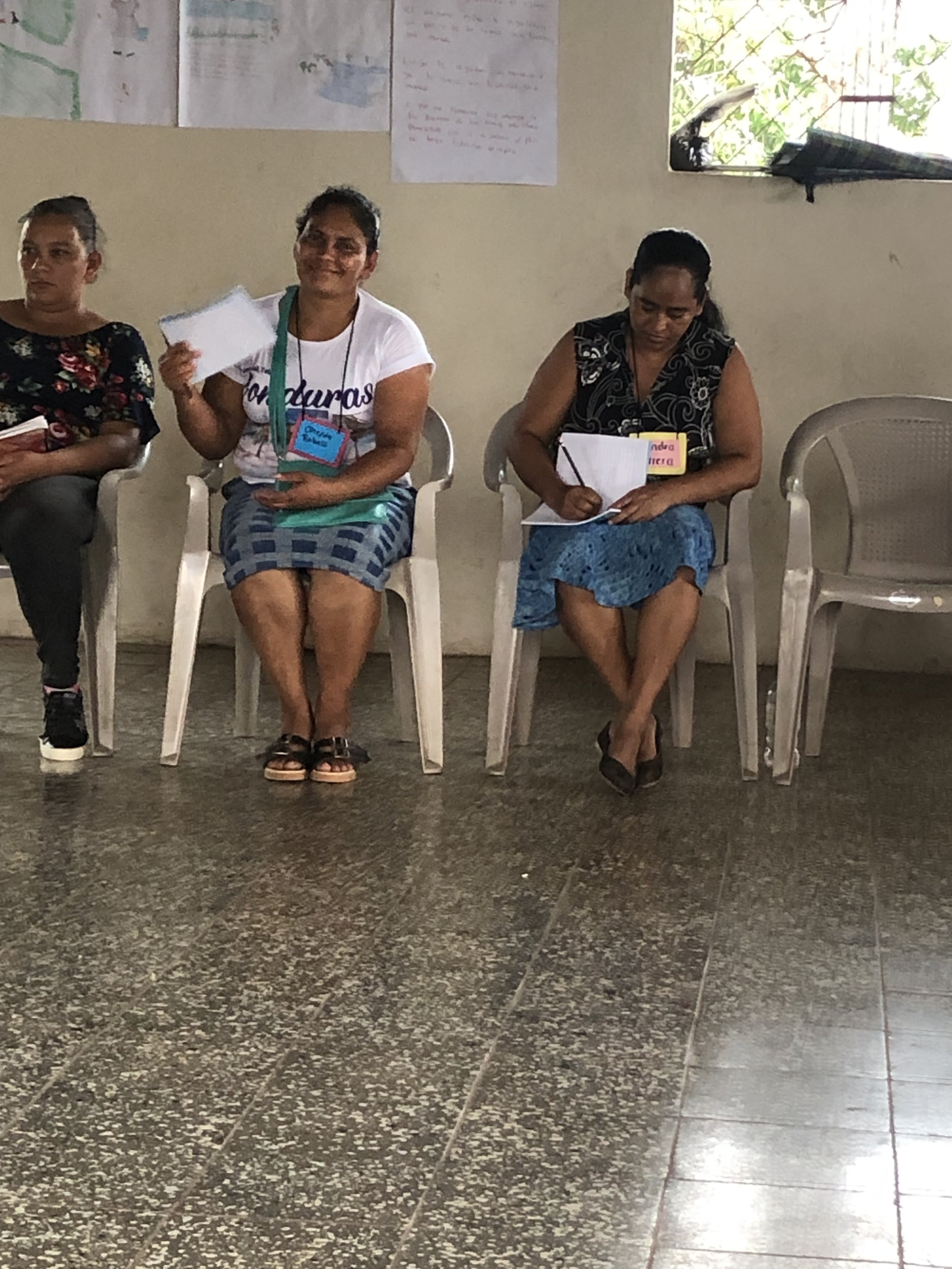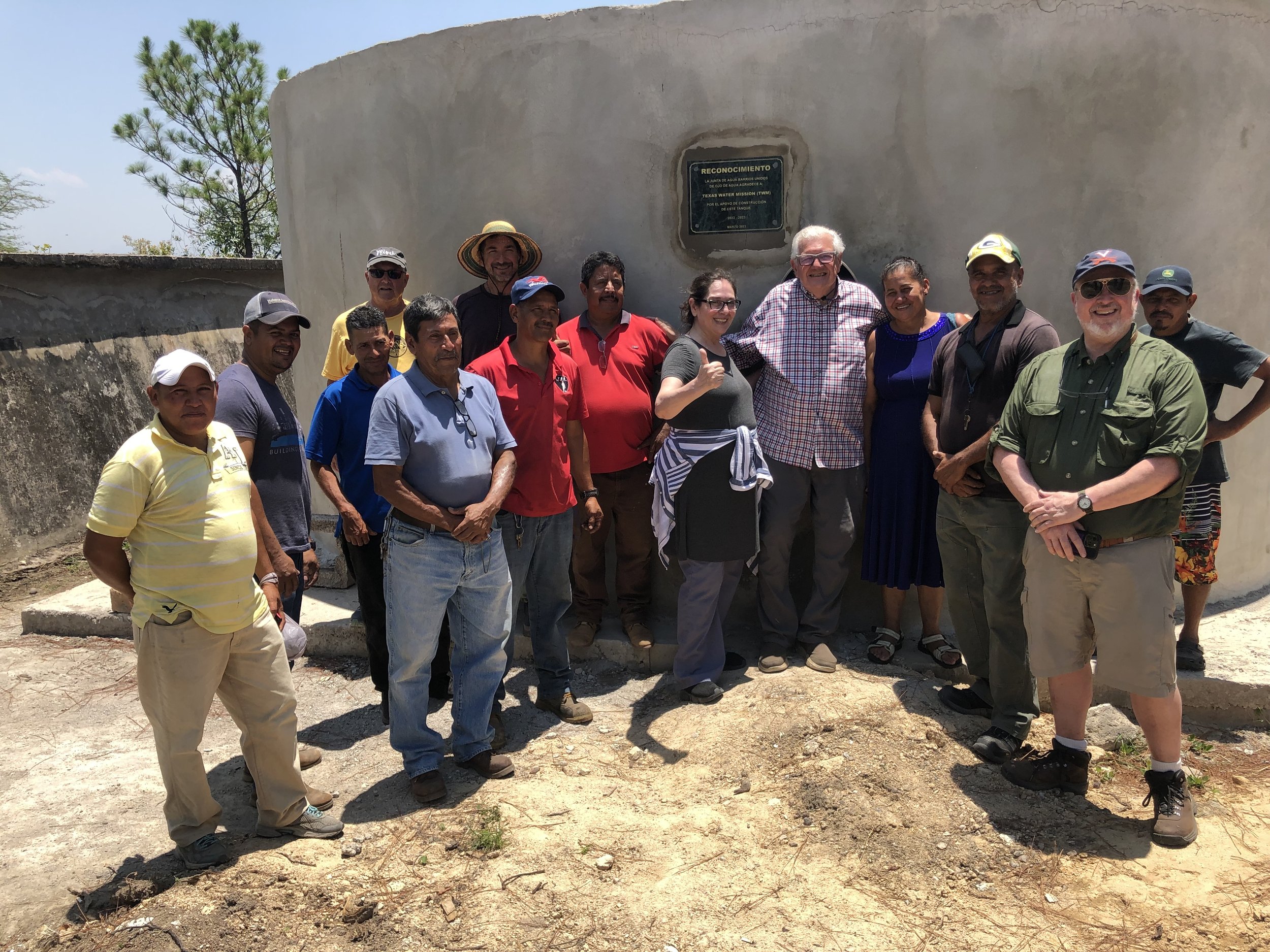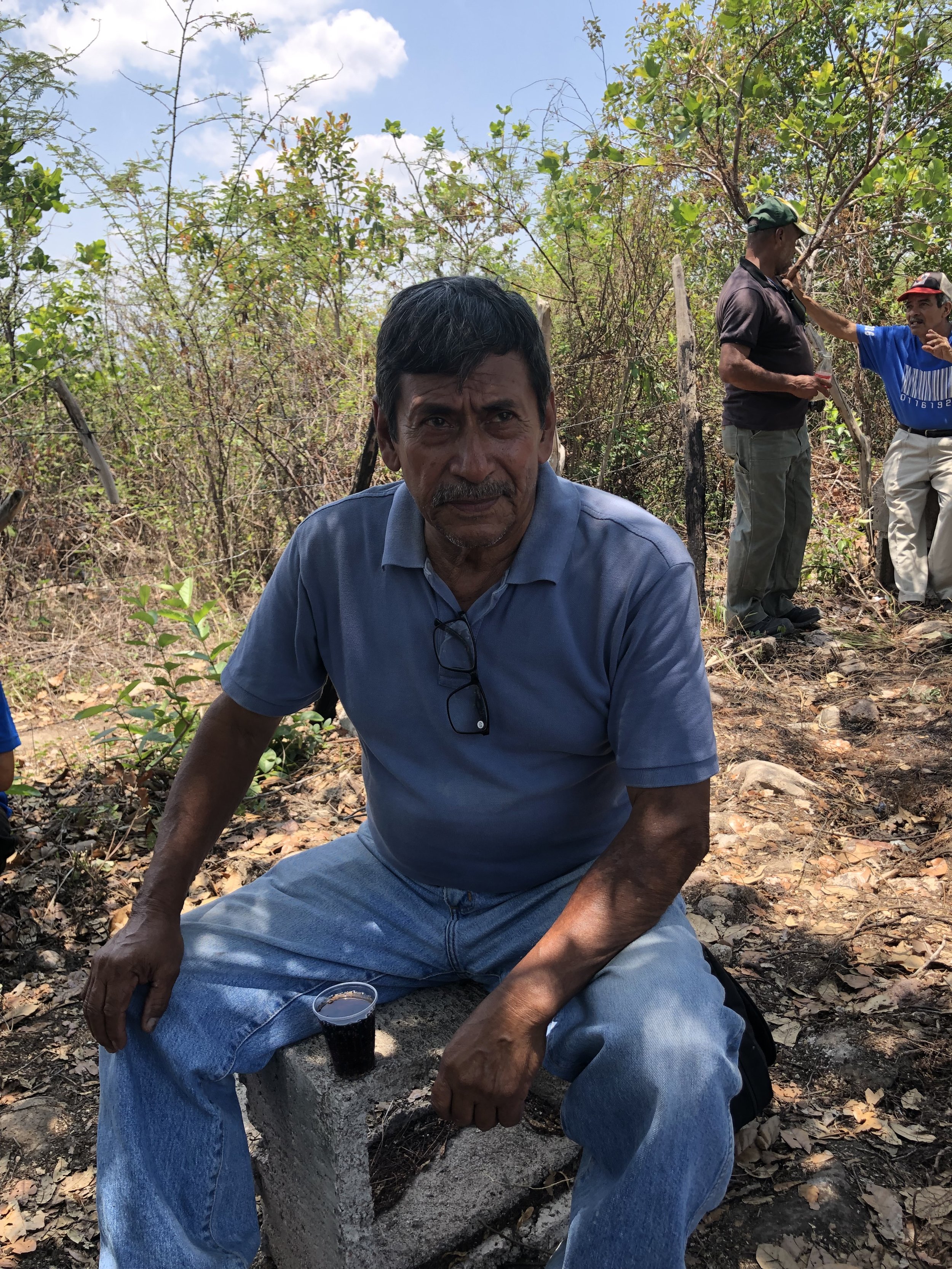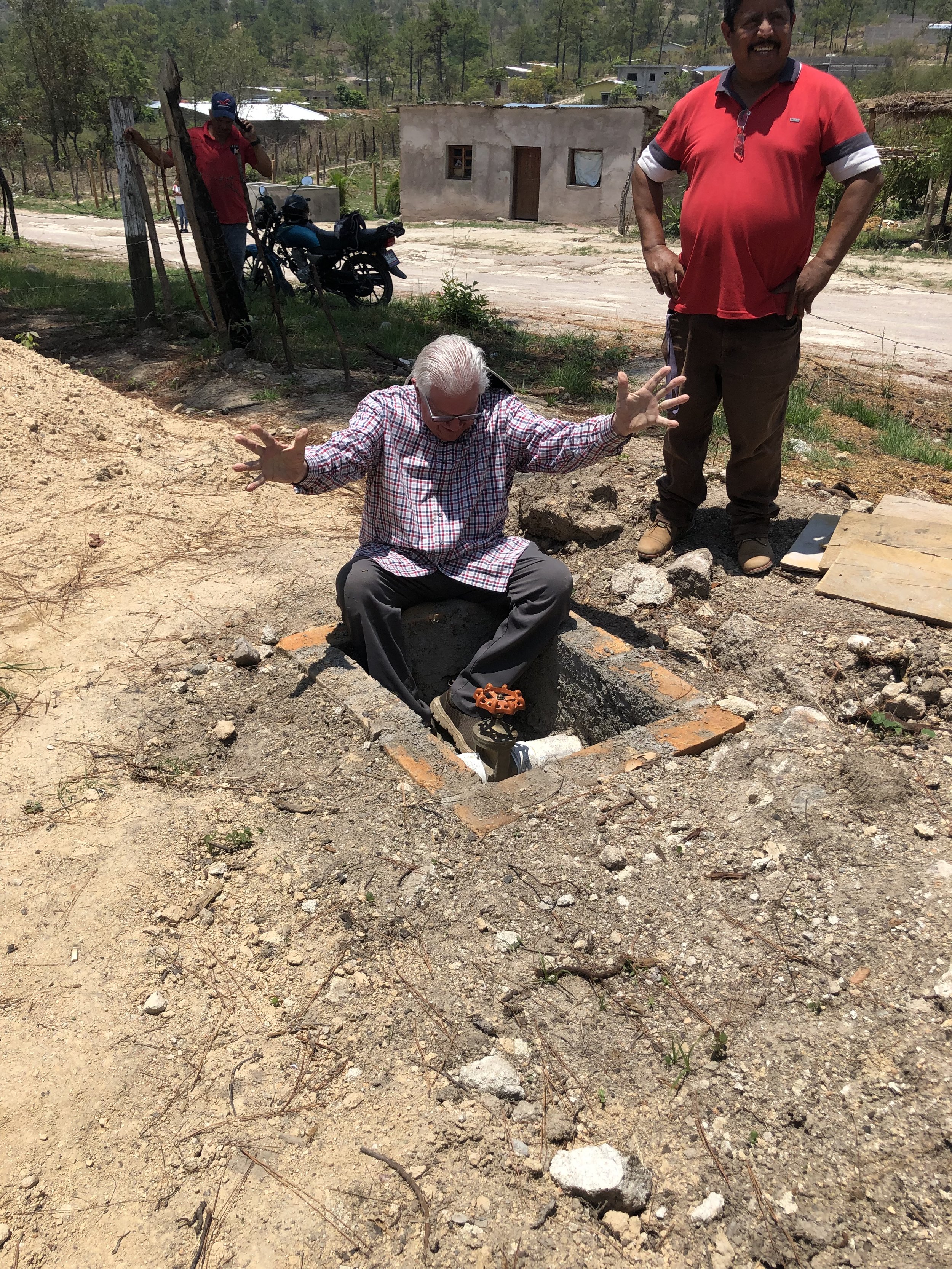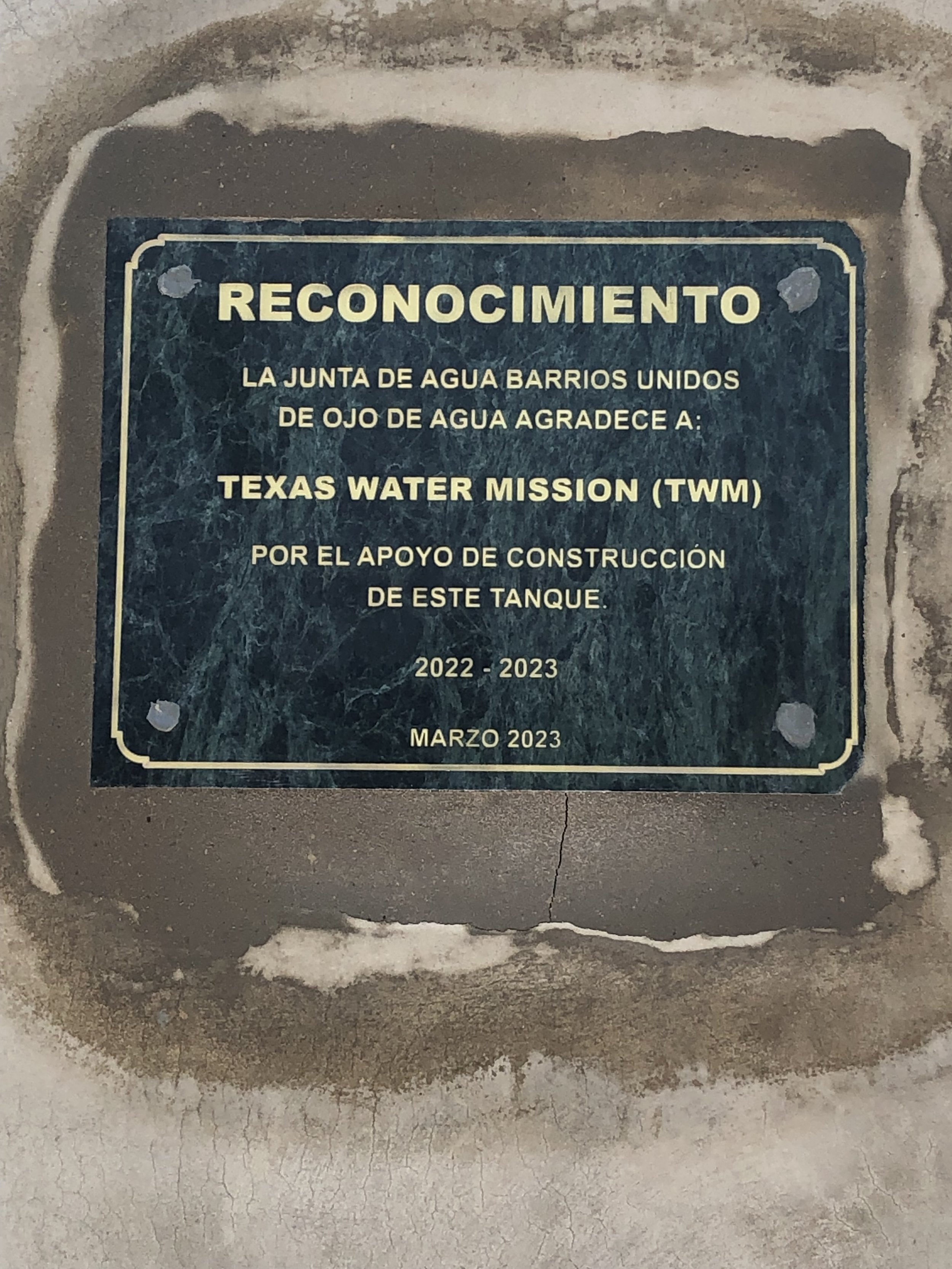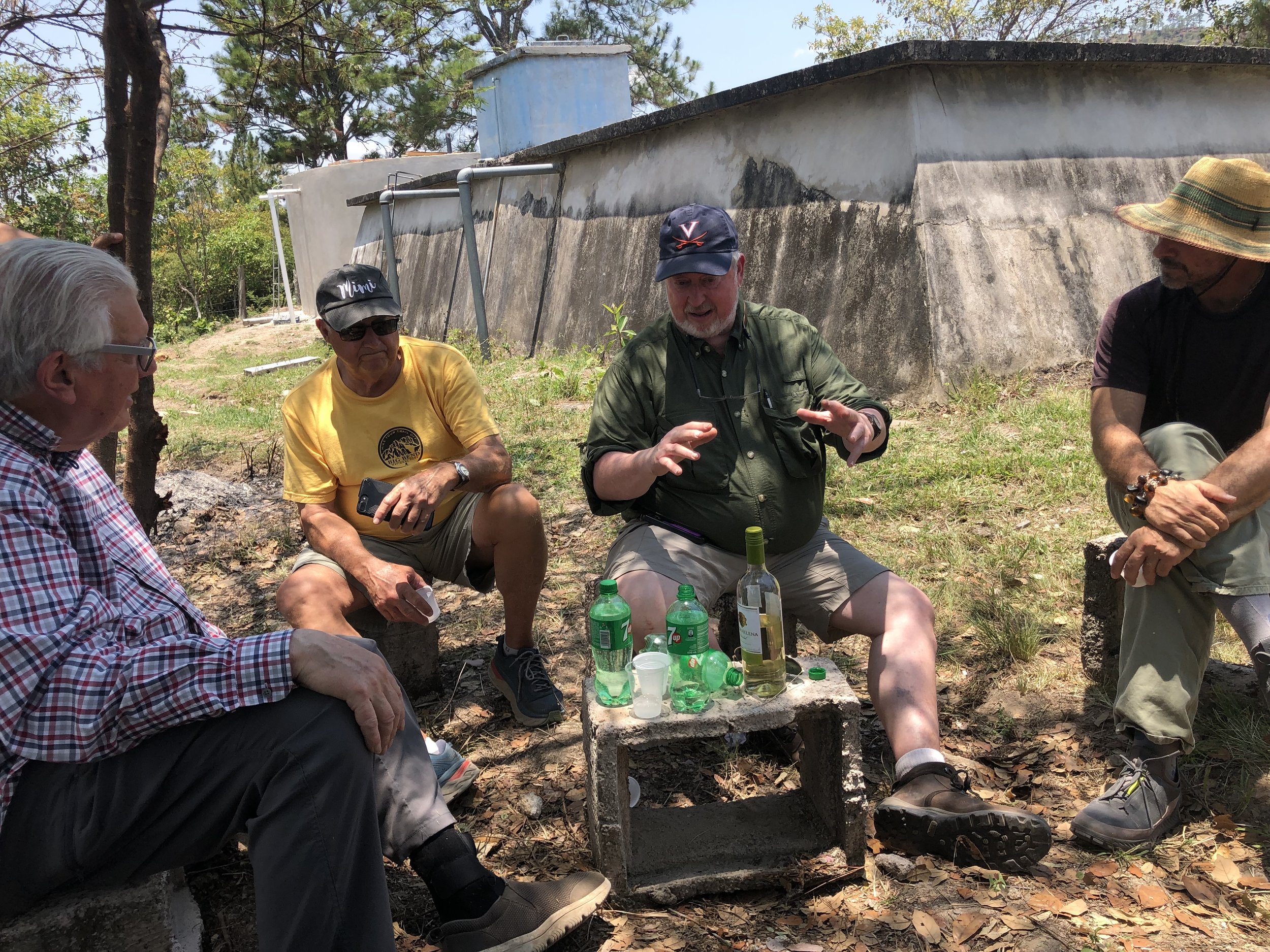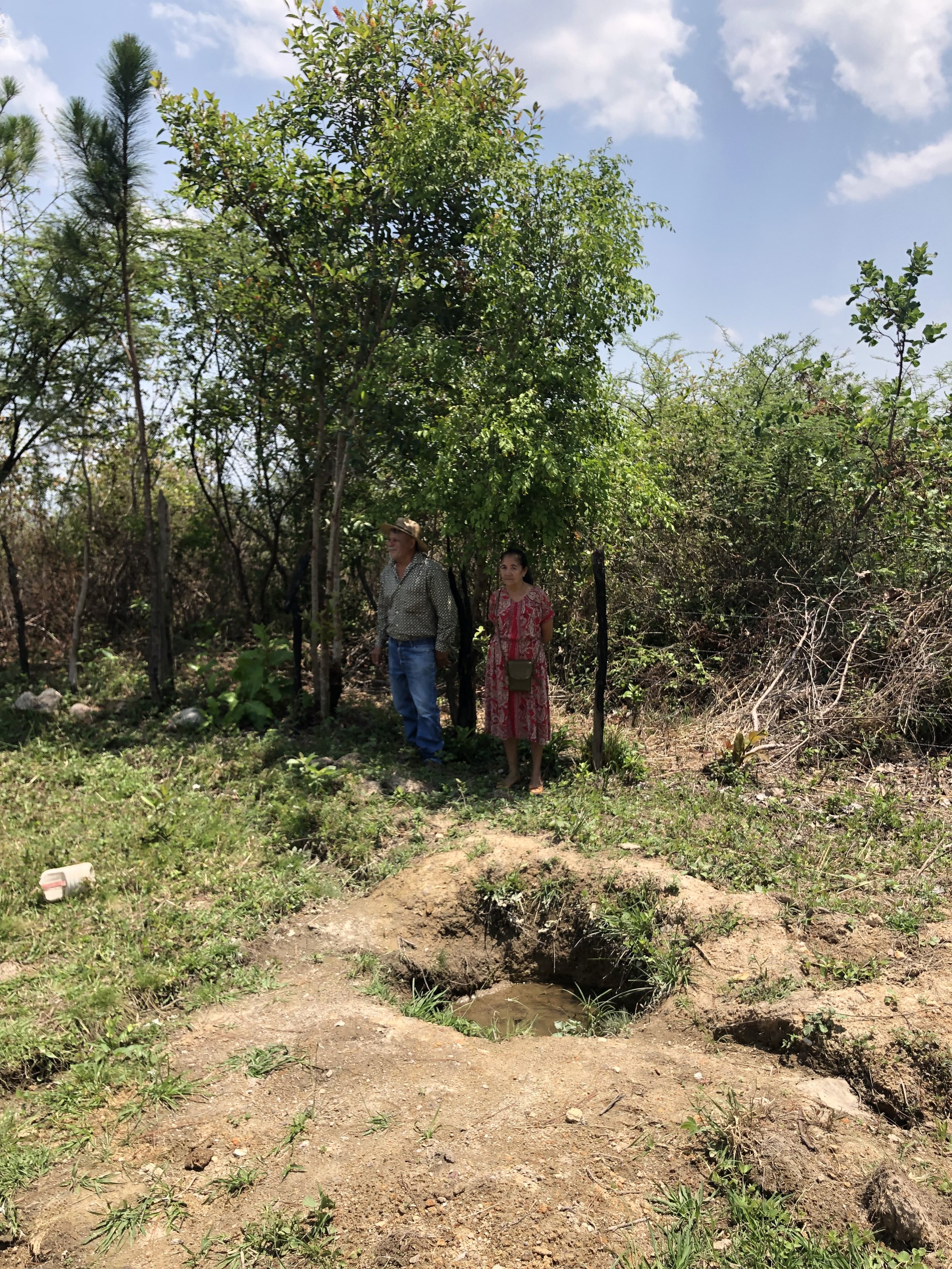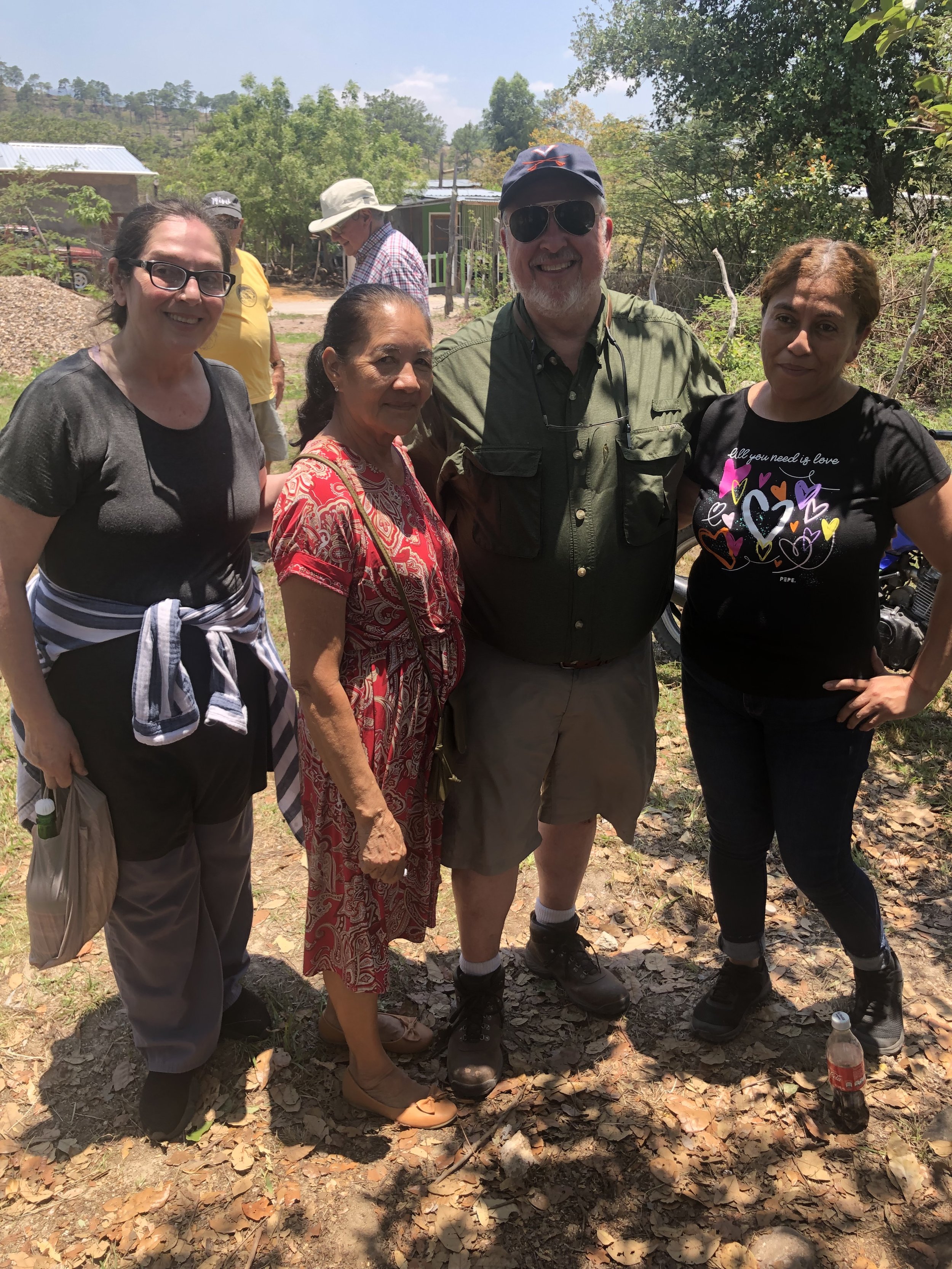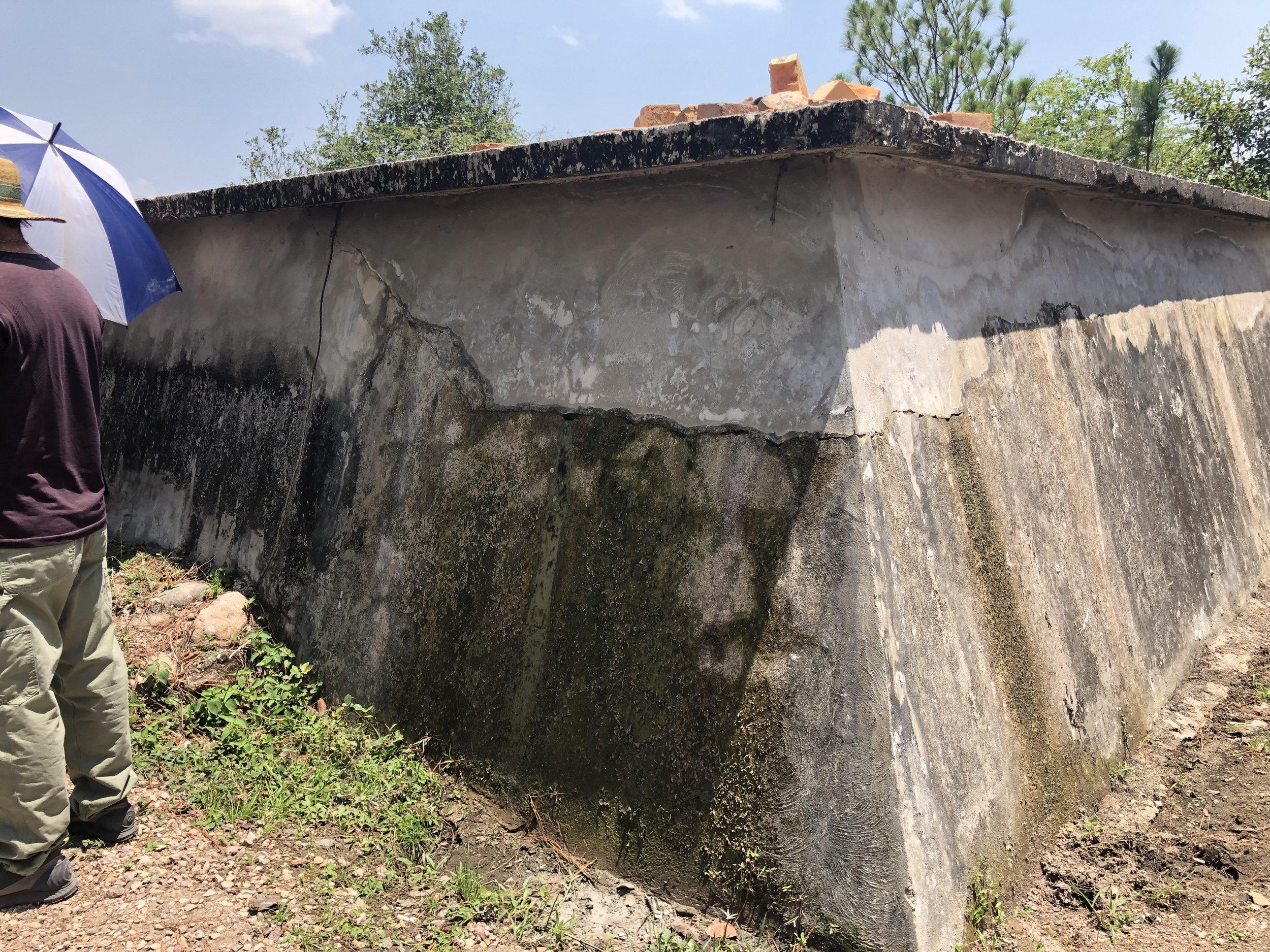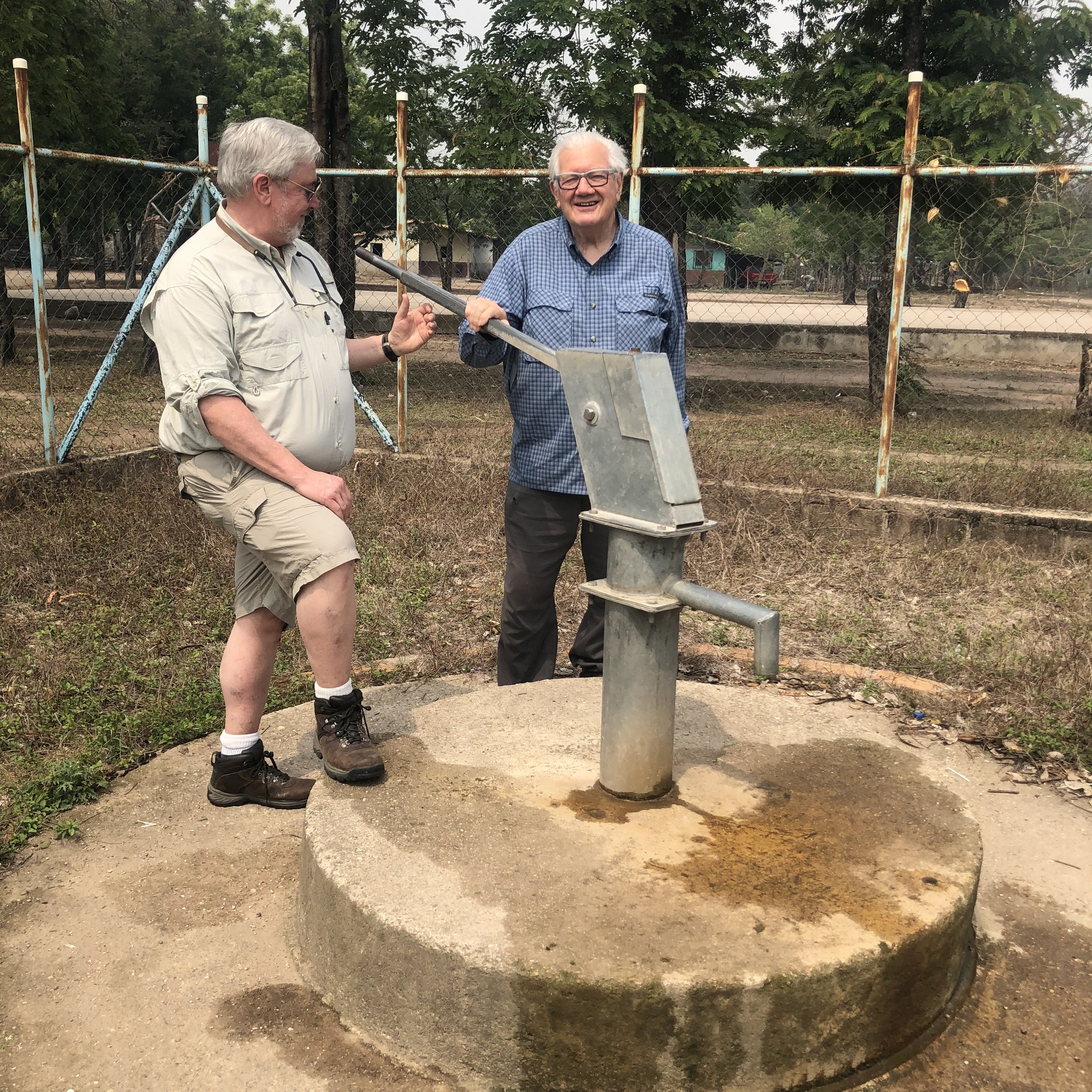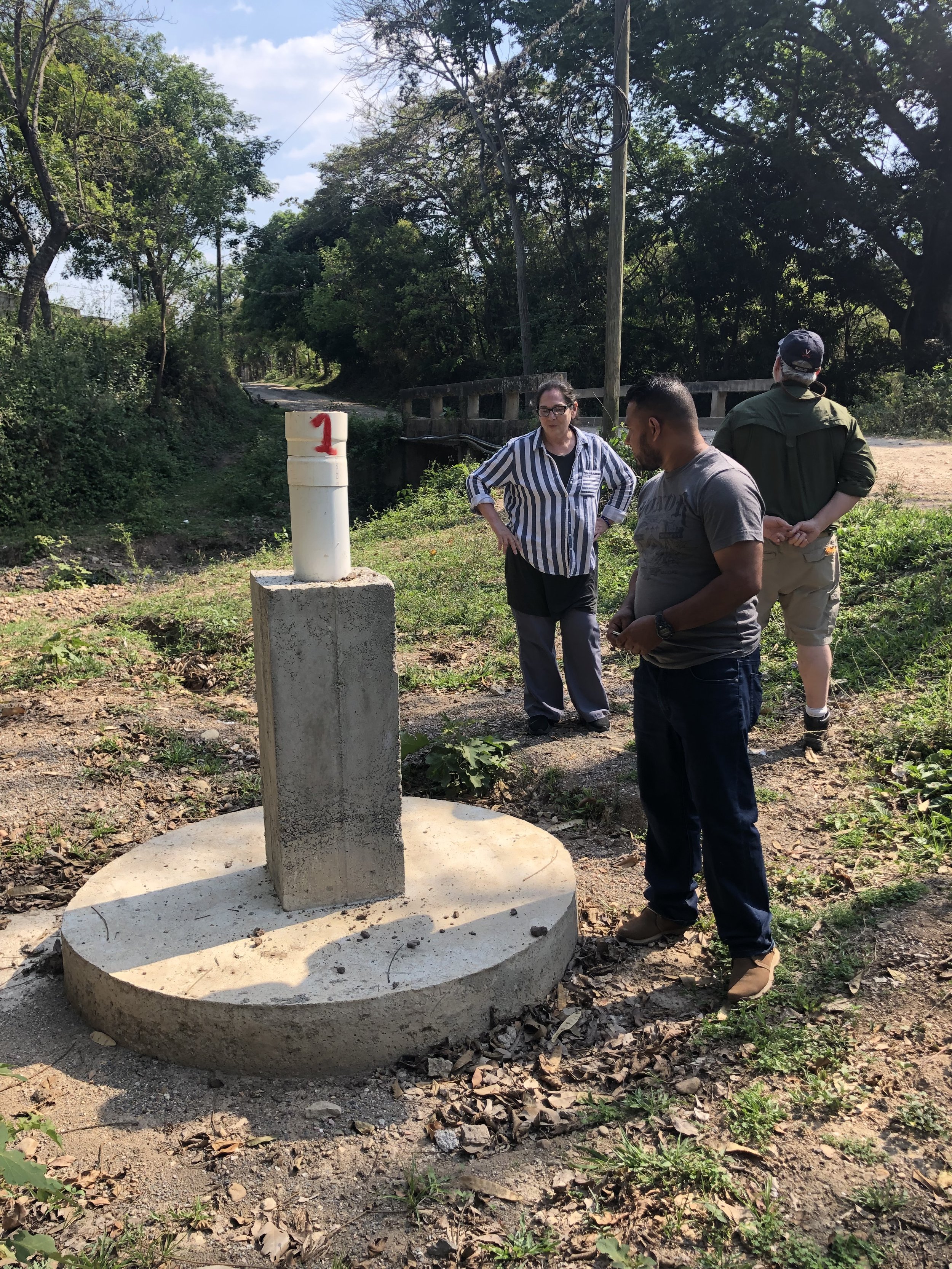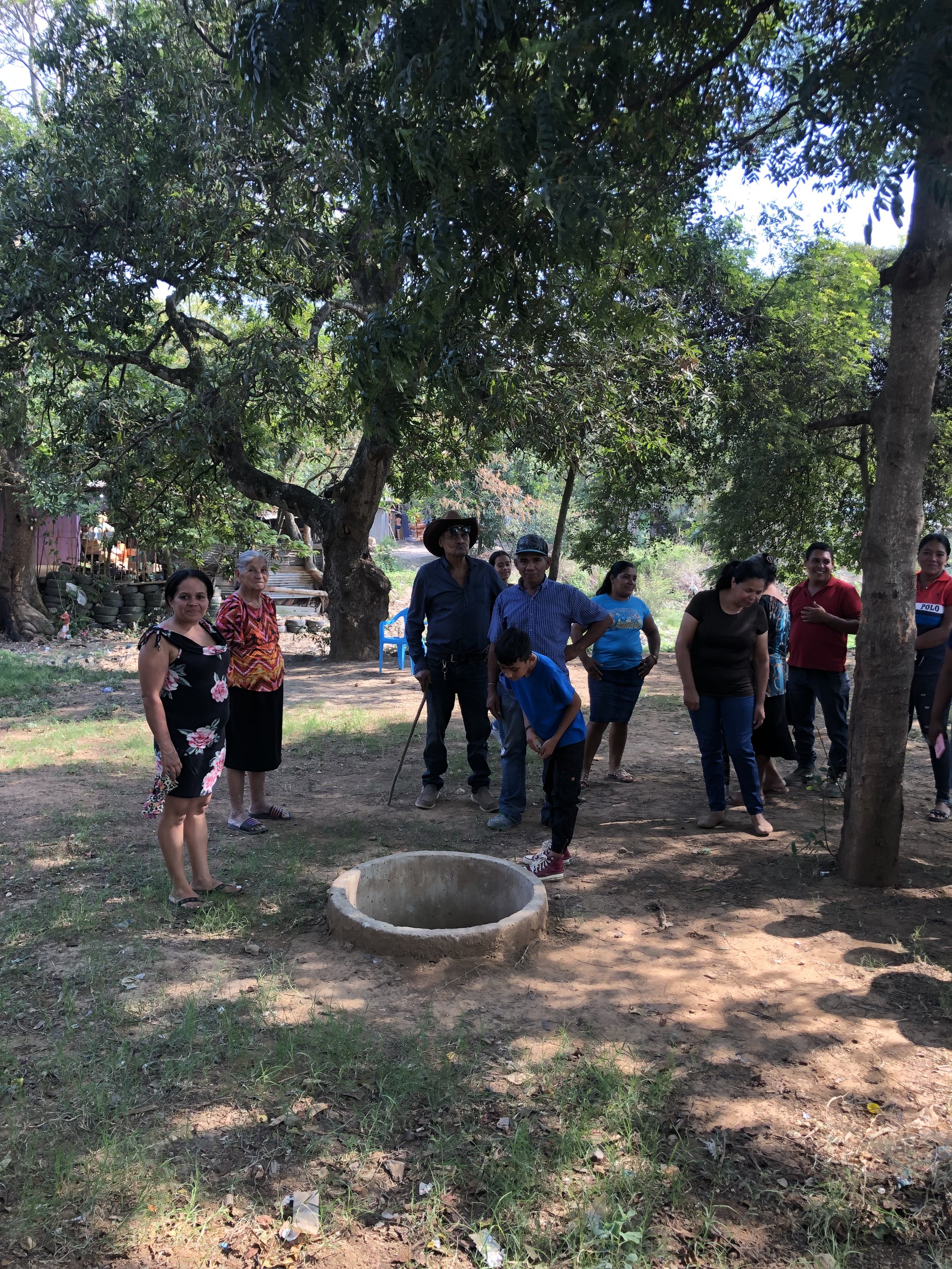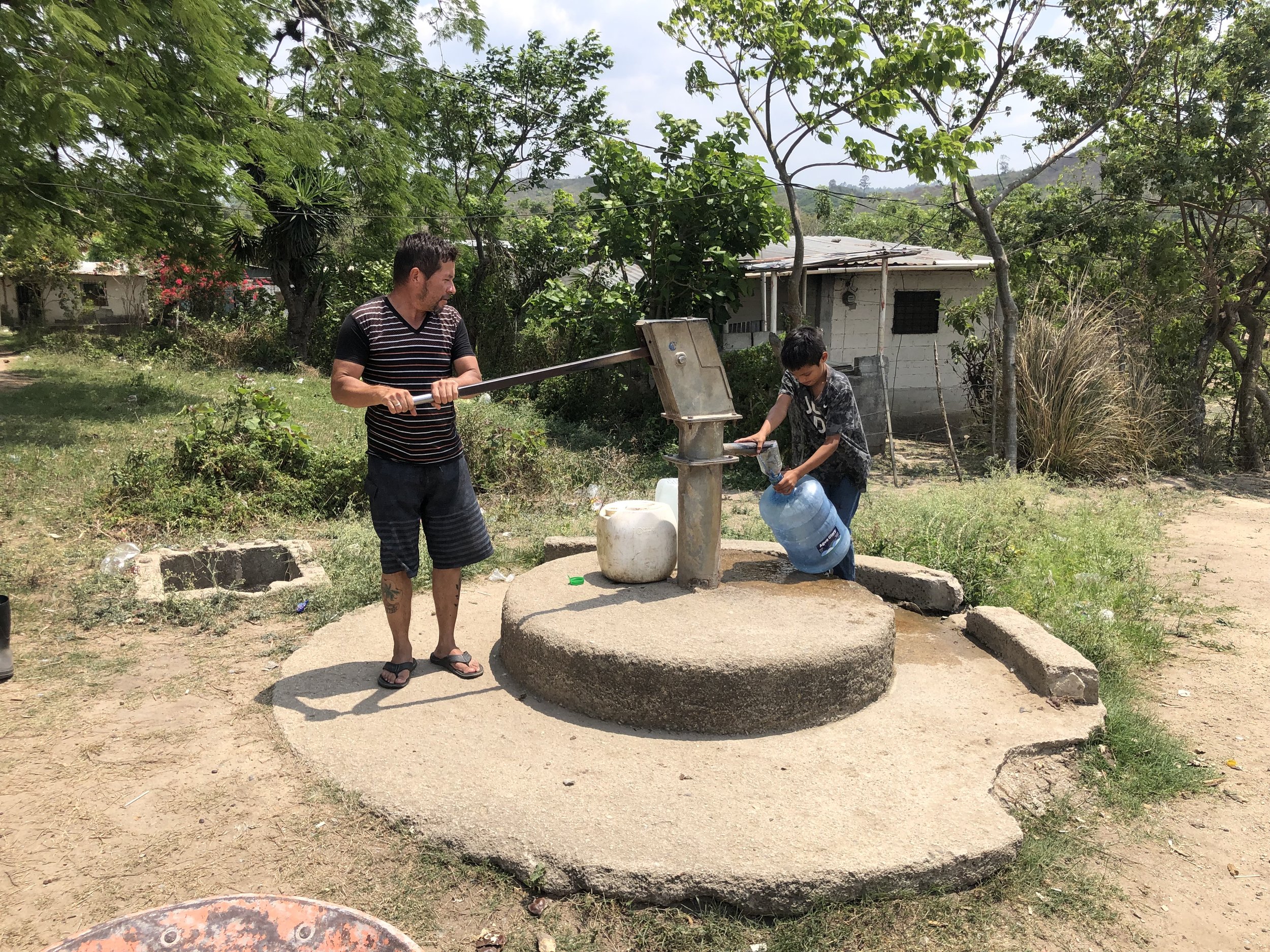On the balcony at Casa Encantada in Danli, Honduras
This year’s trip to Honduras provided an impressive array of experiences and perspectives for our little group (3 board members, 2 volunteers, 1 employee). We heard from government staffers at the U.S. Agency for International Development (USAID) in Tegucigalpa, water lab professors at state-of-the-art Zamorano Pan-American Agricultural School, health officials in a dusty office in Danli, residents of a broad east-west swath now called Corredor Seco (Dry Corridor) due to sustained drought, and small communities where we have installed water projects or received requests for wells. We toured Zamorano’s AguaClara water treatment plant, and a coffee plantation in the mountains near Nicaragua that is part of the cooperative where we source our coffee. Finally, doctorate student and volunteer Roxana Menes gave the first in a series of continuing education classes on climate change to our Maestras who teach health and hygiene in the communities where we work. See pics and particulars below.
Street scenes in Tegucigalpa, May 2, day of our visit to USAID…
checking in at usaid
We turned in our phones and were ushered into a large conference room where American and Honduran USAID employees working in Economic Growth, Environmental Protection, and Disaster Relief, shared information on topics from climate adaptation to rainwater harvesting to concerns about out-migration. They listened to our story and were pleased to see TWM Board Member - and former Ambassador to Honduras - Jim Creagan appear on Zoom from San Antonio. Creagan was Ambassador in 1998 when Hurricane Mitch struck and he directed significant aid to Honduras.
USAID on Climate Change and Adaptation: In Honduras climate challenges manifest in a vicious cycle that erodes communities and contributes to internal and external migration. Droughts weaken the country’s forests so that the trees are more susceptible to insects and fires. They are further degraded through expansion of agriculture and extraction of minerals. Meanwhile, changes in the precipitation patterns where drought alternates with stronger storms and flooding is altering the hydrology of key watersheds. Communities that rely on surface water are at the highest risk of losing their livelihoods (the majority of rural residents farm) and suffering from natural disasters.
****
These climactic challenges make TWM’s work drilling wells and educating communities all the more important. We received 5 new requests for wells during this visit, so now have 10 communities waiting for relief and more planning to submit requests. To address relevant education needs, Roxana began preparing lessons on climate change and environment to teach our Maestras so they can add training on composting, recycling, tree planting, and gardening to the health and hygiene workshops.
SETTING DRILL IN PLACE AT QUEBRADA GRANDE MAY 3
The next day we visited Quebrada Grande, a rapidly growing rural community of about 600 people. They had been sharing a well with another community and it is no longer enough. They are building a new water tank and hope to run water from the new well into the tank via solar pump. The well, completed one week later, has a flow of 60 gallons/minute, enough to fill both new and old tanks and meet the community’s water needs into the future. TWM Board Member Jay Buzzini is working with a Texas company to source the proper solar pump for Quebrada Grande. In the meantime, TWM’s well maintenance team will install a handpump.
TWM Board president Bruce Flohr was touched by seeing the faces of those TWM is helping - the group that was waiting for us to arrive, and the women listening intently how to keep their families safe from contamination. Board member Josh Levine was impressed by the professionality and competence of the drilling team, while Rev. Jay Buzzini felt like he was back in the Texas oil field where he learned how to drill. We stopped at Quebrada Grande one more time before the board members left and witnessed the final segment of the workshop - community members role playing a scene at a well pump and receiving their own countertop water filters.
That evening, back at Zamorano’s Kellogg Center, where we were staying, we met a group of young people from the Corredor Seco, who had received week-long scholarships to learn agricultural and aquaculture techniques. They were disappointed in the experience, telling us it would be impossible to implement these techniques without water! We started a WhatsApp group with them to share resources such as NGOs that might be working to help people access water within the Dry Corridor.
The next day we were invited to celebrate completion of a new water tank in Ojo de Agua, another project funded by TWM. The community again came out to meet us and even threw a little party.
The photos above (clockwise from top) show our group with the Junta de Agua (water committee) in front of the new tank, Junta Treasurer Antonio, TWM Board Chair Bruce Flohr turning on the tap to fill the new tank, a plaque the Junta made to recognize TWM’s contribution, 3 scenes from a little party celebrating the new tank, and finally, the old tank which will now be repaired.
***
Later on we met with water laboratory professors Erica Tenorio & Lourdes Espinal at Zamorano. We learned we could work with local health departments to empower communities to get their water tested regularly. We also discussed methods of water treatment from household to community levels. The profesoras described the zero-energy AguaClara system developed at Cornell University in collaboration with Agua Para el Pueblo, a Honduran NGO that builds potable water systems for communities. Roxana and I accepted an invitation to tour Zamorano’s model AquaClara plant the following week…
Profesora lourdes espinal and plant manager gimy elvir at zamorano’s aguaclara water treatment plant
The AguaClara gravity-fed design is uniquely designed and suited for Honduras’ geography as well as the climatic impacts discussed above including deforestation and increased flooding which increase turbidity in surface water. To date, there are 8 plants in Honduras in low to moderate income communities of 1,500+ people. They are fairly inexpensive to build and operate and very effective in reducing sedimentation. Skilled operators like Gimy are essential. More information about the system can be found in this online paper.
The week after our board members left, Roxana and I relocated to a hotel in Danli, the largest population center in El Paraiso, central to most of the communities where TWM works. During both weeks our well maintenance lead and driver Luis Fernando Zuniga took us communities that are using TWM wells or have submitted well requests to us. Here are a few scenes from these communities…
From left to right: Jay & Bruce at TWM well in El Campo; Roxana, Luis Fernando & Jay at well TWM funded in El Barro that is ready for it’s electric pump; residents at Las Acacias around hand dug well that is no longer functioning; a father and son pumping water at Colonia Emanuel.
Roxana and me with Gisel from cafe uno may 11 at coffee farm tres piedras
High in the mountains of El Paraiso, Honduras, Pedro Zuniga farms approximately 40 acres of coffee and banana trees. The species are complementary, supporting each other’s growth and providing a constant source of product between the two. The farm, Tres Piedras, is a member of the Honduran Coffee Alliance, the organization from which TWM sources it’s brand, “Coffee Into Water.” Coffee is harvested is between November and April, peaking in January / February. We may try to go during this period in 2024 to see what it’s like to pick coffee beans!
We need a lot of support to keep existing wells in good order while providing safe drinking water and education in more communities. Not only do we pay our well maintenance team and Maestras for their services, but we currently need tools for building needed pump parts, a new work truck, a storage shed for pump parts, continuing education for the Maestras, and a way to provide more solar pumps, a new expense for TWM.
***
During our meeting with USAID we learned about the Red Humanitaria (Humanitarian Network), a program of UNICEF in Honduras that collaborates with NGOs to address crises. We had a Zoom call with the coordinator and learned that their current focus is the mass exodus of Venezuelans and other migrants from countries to the South that are flowing through Honduras. It is truly unprecedented and we saw many of them in Danli, an important waystation on the way north. The coordinator of the Red connected us to PTPS Honduras, an organization with a mission similar to that of TWM. Roxana and I will talk with them next week with the goal of collaborating on an interactive map showing what NGOs are doing what and where. Our goal is to integrate ourselves into the country’s NGO network to create alliances and achieve greater efficiencies.
***
In the meantime, please consider supporting Texas Water Mission with a donation for Honduras and/or purchase some of our gourmet Honduran coffee, freshly roasted in San Antonio.
If you have questions or comments about anything in this blog, please do not hesitate to reach out.
Thank you for your interest and support!


